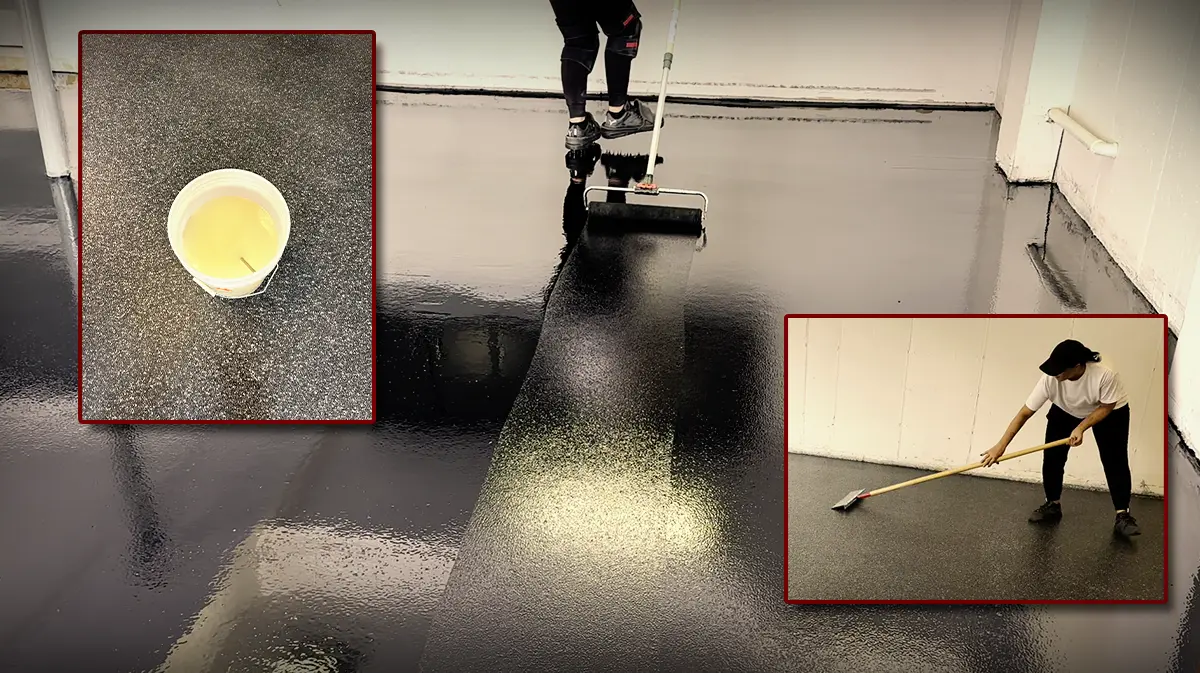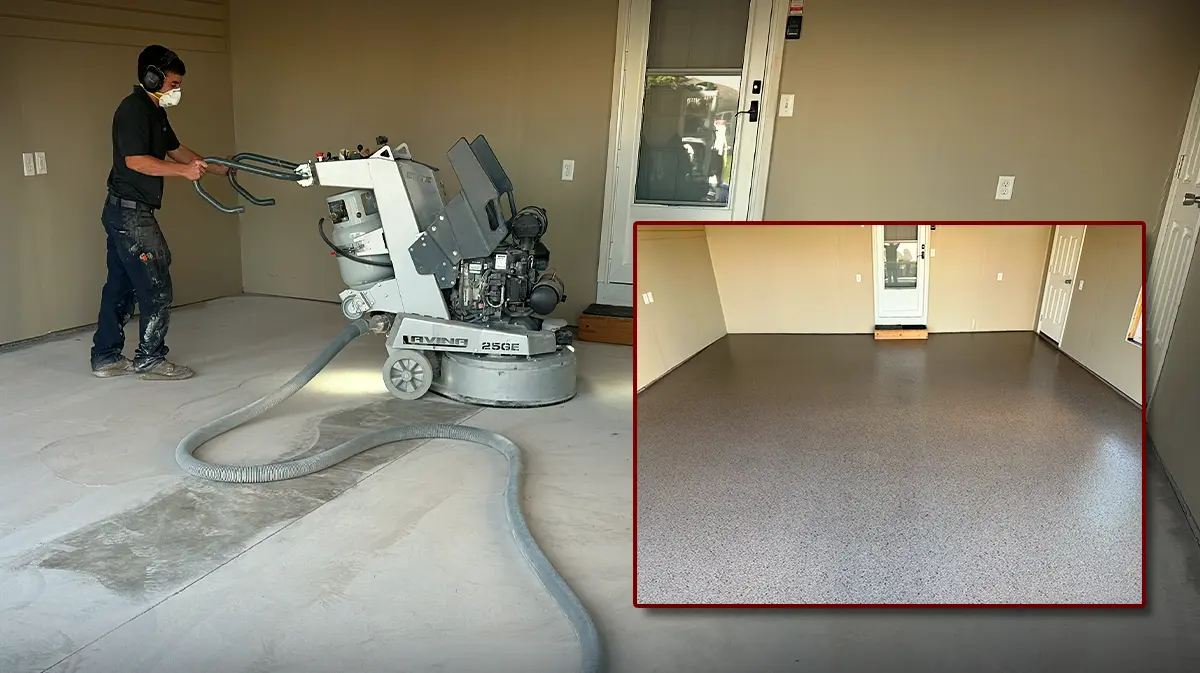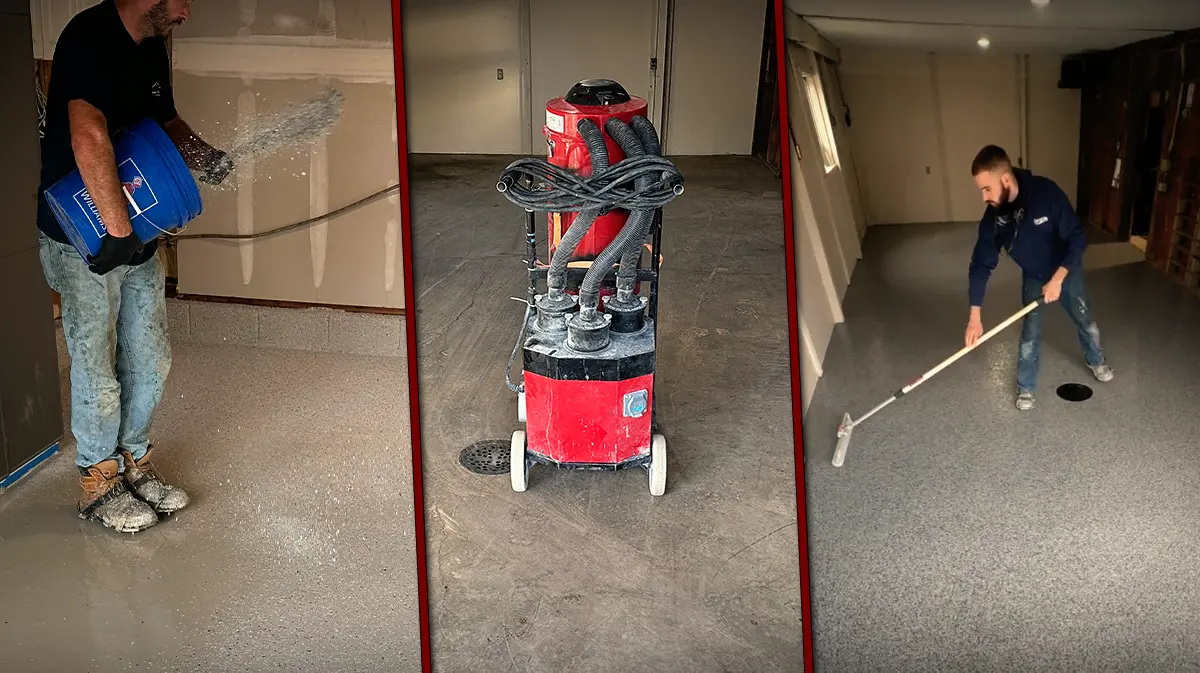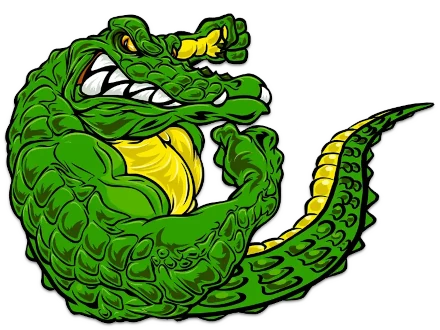When considering GatorGuard for your St. Louis home or business, it’s important to understand the key terms used in the concrete coating systems industry. Below, we explain some of the most common concepts in floor coatings to help you make informed decisions.

Concrete Coating Systems: Coating Types
- Epoxy Coating: Epoxy is a high-build coating that’s perfect for protecting your garage or basement against moisture infiltration. GatorGuard’s moisture-mitigating epoxy coatings are 100%-solids and designed to act as a moisture vapor barrier. They’re an excellent choice as primer coats for residential and commercial spaces where moisture-infiltration is likely, especially garages and basements.
- Polyaspartic Coating: A polyaspartic is known for its quick cure time and UV resistance. In St. Louis, where summers can be hot and humid, a polyaspartic is ideal for outdoor spaces or projects with tight deadlines. These coatings are less likely to yellow over time when exposed to direct sunlight. However, polyureas and polyaspartics have an Achilles heel: they’re shouldn’t be applied as primer coats in the presence of medium to high moisture content in the concrete. Hence, these coatings are best used as color or clear top coats (and never as direct-to-concrete primer coats).
- Polyurethane: A flexible, UV-resistant topcoat, polyurethane provides additional protection when applied over an epoxy basecoat. These coatings are particularly useful for exterior concrete slabs exposed to direct sunlight or heavy traffic, as polyurethanes guard against UV light, scratches and wear. However, polyurethanes aren’t good at resisting staining due to hot-tire transfer and can be odorous). As such, they shouldn’t be for most interior spaces, especially garages.
Visual Enhancements
- Flake System: A flake system involves broadcasting decorative flakes into the base coat of epoxy. These flakes enhance both the aesthetic and functionality of the floor, adding slip resistance and texture. GatorGuard’s flake systems offer a range of color and design options to suit your specific style.
- Mica Flakes: Mica flakes are a popular choice for those seeking a reflective, stone-like finish. The reflective qualities of mica add depth and create a shimmering effect, making it an excellent option for showrooms or high-end garages.
- Full Chip System: This system covers the floor completely with decorative flakes, resulting in a thick, durable surface. The full chip system is perfect for high-traffic areas, such as garages and commercial spaces.
Miscellaneous Terms & Definitions
- Moisture Mitigation: Moisture is a big concern in St. Louis, where humidity levels fluctuate, especially in basements. GatorGuard’s moisture mitigation process ensures that any water vapor trapped in the concrete doesn’t lead to peeling or bubbling. Proper mitigation is critical to ensure the longevity of your epoxy or polyaspartic coating.
- Waterproofing Basement: Waterproofing with GatorGuard’s epoxy flooring systems protects your basement from the dangers of flooding or dampness. These coatings create a moisture-resistant barrier that prevents water from penetrating the concrete, making it a popular solution in areas prone to heavy rainfall, like St. Louis.
- Garage Floor Coating, Concrete Floor Paint, Garage Floor Paint: These are commonplace terms people generally use to describe various epoxy flooring options. Technically, concrete paint is just paint and not a flooring option.
Conclusion
For homeowners and businesses in St. Louis, GatorGuard offers top-tier epoxy and polyaspartic coatings that enhance both the functionality and aesthetics of your space. By understanding these key terms—whether it’s moisture mitigation or decorative flake systems—you’ll be well-equipped to choose the best solution for your garage, basement, or commercial property.
Share this Post




